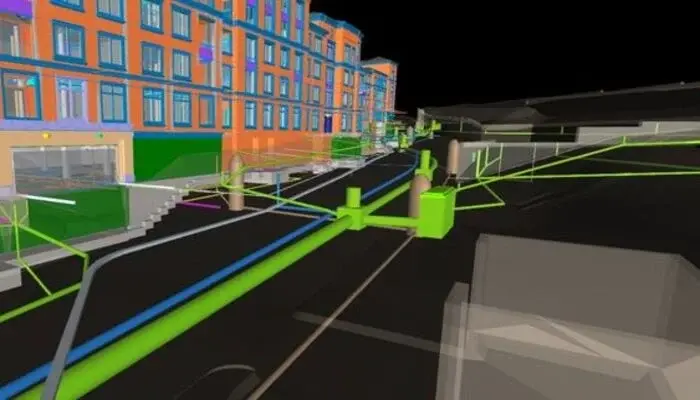
The AEC industry used to be one of the least digitalized industry owing to its slow adoption of digitalization. Being part of it, the Civil engineering industry stands rigid and resistant in nature. However, the landscape has started to shift recently. With growing focus towards sustainability, environment concerns, housing and infrastructure, etc, there’s also an increased recognition for the Civil Engineering profession.
To meet this rising demand, the industry is adapting rapidly with traditional roles being redefined, and entirely new roles emerging. From smart cities to large-scale infrastructure projects, the number of available opportunities are increasing at a rapid rate.
This article will help you to get an idea about the areas you can specialize in and the job roles you can opt for as a civil engineering graduate. You’ll explore the roles and responsibilities of these professionals, scope of these roles, and the skills you need to focus on to excel as a civil engineer .
Career Options after B.Tech
1. BIM Engineer

Building Information Modeling (BIM) has been a buzzword in the AEC industry in recent years, and it’s all for the right reasons. BIM is changing the way how the civil engineering industry operates and it is having its impact on all domains of civil engineering from Structural Engineering, Transportation engineering to Remote sensing.
For fresh civil engineering graduates, starting a career in BIM as a BIM modeler or BIM technician is a common way. You’ll get to model buildings in 3D, run multi-disciplinary clash-detection using coordination software, create 4D and 5D simulations etc. You can also get experience in drafting BIM Execution Plans and adhering to ISO 19650 standards which are widely adopted for BIM Workflows around the world.
BIM has already proven its benefits in many countries, with Nordic countries like Norway, Denmark, Sweden and Singapore in Southeast Asia leading the BIM Adoption rate. India has been relatively slow in adopting BIM but has picked up the pace with many initiatives from the Government of India incorporating BIM in the Indian Infrastructure space recently.
There are already many multinational companies setting up their offices in India to hire professionals with BIM skills. There are also numerous Indian companies that specialise in BIM and are outsourcing their skills to other countries. All this has contributed to a large number of job opportunities in the BIM space and it is only expected to increase in the near future.
Having a basic knowledge of industry workflows and BIM Terminologies, learning modelling tools like Revit, Tekla and coordination tools like Navisworks, Solibri, etc are needed to secure a job as a BIM Engineer. Since a lot of stuff happening around the BIM is digital, having solid computer wisdom is somewhat of a requirement to grow in BIM. Having knowledge of visual programming and coding skills, like Dynamo or Grasshopper can get you miles ahead of your competition.
Also Read - A Complete Guide To Tranisition From Engineer-in-Training to High Paying BIM Professional
2. Urban Planner

If you have ever wondered who designs the city layouts, the transportation systems and the greenspaces, it is the Urban Planners. If you find this line of work interesting, Urban planning can be a rewarding career path for you. The Smart Cities Mission by the Union Ministry of Urban Development is one example that showcases the opportunities that are being created in the Urban Planning domain. There are many such initiatives being taken up by both Government and Private bodies. As India’s Smart City missions progress, the role of Urban Planners will become more and more critical in developing clean, efficient, and sustainable urban environments.
With India’s growing focus on the infrastructure space, the need to align the urban systems with the infrastructure is also growing. Civil Engineers with expertise in Urban Planning ee are the ones who will be leading this change.
Urban planning is also a growing field internationally. Countries like Singapore in the South-east Asia region and Denmark, Norway in the Scandinavian region are leading the way in Sustainable Urban Planning. Indian states and cities are expected to follow suit, making urban planning a promising career both locally and internationally as well.
If you are interested in directing your career in the Urban Planning path, consider developing knowledge in GIS (Geographical Information System) and related tools like QGIS, ArcGIS and Infraworks.
3. Structural Engineer

If you are interested in working on the design and analysis of the structural system of buildings, becoming a Structural Engineer will be a very rewarding career path for you. As a structural engineer your job is to ensure that building, bridges and other structures you design are designed strong enough to bear the forces it will be subjected to. In this role, you will calculate the forces acting on the building, design member sizes, do design checks and ensure you meet the standards.
Although it is relatively easier to land a job as a Structural Engineer if you have an M.Tech, there are still plenty of companies that hire B.Tech graduates as Junior Structural Engineers. As a graduate, you will be working with senior engineers, assisting them in making calculations or drafting sketches. But eventually, you’ll gain more autonomy and get to work of more complex and challenging projects.
Strong knowledge of Engineering mechanics and Structural analysis are required if you are keen on landing a Structural Engineering role. Understanding of at least one Structural Analysis software like ETABS, StaadPro, SAP2000, etc is anecessity . Recently, Structural Engineers with BIM expertise are also on high demand.
4. Site Engineer

Starting their career as a Site Engineer is a classic choice for many Civil engineering graduates. Site Engineers oversee construction progress, ensuring that the project follows the design and stay on schedule.
The role of Site Engineer has been synonymous with a career path that pays less, has no growth, has very little growth opportunities for ages now. All that changes if you have right skillset to stand out. While the role is traditionally hands-on with little to no technology involvement, incorporation of BIM workflows has opened up a whole new array of jobs on site. By understanding BIM Workflows, you can create a better communication framework on the site, coordinate tasks better and ensure an overall smooth project execution.
In a growing country like India, the need for site engineers and supervisors will always remain strong. With the growth we see in urban developments and infrastructure, site engineers with tech skills will be a crucial asset to any project.
The best way to become ate engineer is to secure internships in firms during your graduation and develop practical knowledge. It is one of the easiest roles to get as an intern. A certification in any BIM tool will give you additional advantage in securing a job once you graduate.
5. Computational Design Engineer

If you are a civil engineer who is interested in solving engineering problems and good with computers and programming, a job in CD (Computational Design) will be an exciting role for you. You will employ innovative methods and modern tools like Dynamo, Grasshopper and conventional programming languages in the context of Civil and Structural engineering to arrive at far more accurate results within fraction of the time your non-computational counterparts can do. You will develop automation tools to help humans avoid repetitive tasks and make computers do them. Computational design allows engineers to explore complex geometries and optimise structures, saving time and improving accuracy.
Like BIM, Computational Design is also a domain relatively new in the industry. However, many European countries have already employed computational design workflows in their projects. And India is slowly catching up. The same MNCs in Europe, who have offices in India, are looking for Computational Design experts locally to assist them in their projects. This makes computational design an attractive career for engineering graduates. Although it is slightly difficult to start your career as a Computational Designer right after graduation. If you have the right skills, you can specialise in CD after working as a BIM Engineer or Structural Engineer for a few months.
The required skills to get a job as a Computational Design Engineer, in addition to descent domain knowledge, includes, Visual programming tools like Dynamo and Grasshopper, programing languages like Python,C#, etc.
6. Transportation Engineer

Transportation Engineering is one of the roles that has gained significant momentumin the recent years. The Indian government’s heavy investment in the country’s infrastructure, including metro systems, roads and highways, airports, and seaports shows a clear trajectory in which the Indian infrastructure market is moving. The number of jobs in this domain is expanding to keep up with the demand.
As a Transportation Engineer, you will be responsible for designing roads, railways, highway intersections, etc. You will be solving intricate problems like traffic volume prediction and traffic analysis.
On an international front, the demand for transportation engineers is rising, especially with countries reinventing what intercity mobility means. On one hand countries like China, India and the ones in Middle east are developing new road networks, while countries like Germany, France and other European countries are working towards renovating their bridges or expanding their existing road network capacity to keep up with their growing demands. Both situations demand large number of Civil engineers with expertise in Transportation Engineering.
Knowledge of basic Transportation Engineering topics, and software like Civil 3D, OpenRoads, etc, should give you a good boost in securing a good Transportation Engineering roles.
7. Environmental Engineer

Owing to the rising concerns of global warming and climate change, every industry has started to direct a lot of their focus on sustainability. As one of the top contributors to CO2 emissions, the AEC (Architecture, Engineering, and Construction) industry is intensely focused on advancing sustainable practices and delivering environmentally friendly solutions to its clients.
Environmental engineers, sustainability consultants, wastewater engineer are some of the roles that come under this category. These professionals focus on engineering solutions, ensuring compliance with environmental regulations and design eco-friendly systems.
Sustainable development in gaining a lot of traction in India, especially in high value projects. Designing green buildings, managing waste and reducing carbon footprints, while staying relatively cost efficient are some of the key responsibilities that you will be having as an Environmental Engineer.
The push for sustainability is a global trend and environmental engineers are in high demand worldwide. This is especially true in regions like Europe, Scandinavia and Americas where strict regulations on sustainability are driving the need for more green infrastructure and subsequently greener engineers.
Consider gaining certifications in green building standards like LEED or GRIHA, as these are highly valued in the Indian construction industry. Software skills like Green Building Studio and energy modelling software add a competitive edge to your profile as well.
Conclusion
The way to ace in the AEC industry is by upskilling your expertise. Now that you have an idea of the career paths you can opt for as a Civil Engineer, it’s time to make the choice. Civil Engineering opens up a plethora of opportunities for you. Become a BIM engineer, an Urban Planner, or a Computational Design Engineer - the possibilities of building a successful career as a civil engineer is immense. Be ready to grab it.
Also check out Novatr's Resource Page for news, trends, and educational content in civil engineering and construction!
Was this content helpful to you










